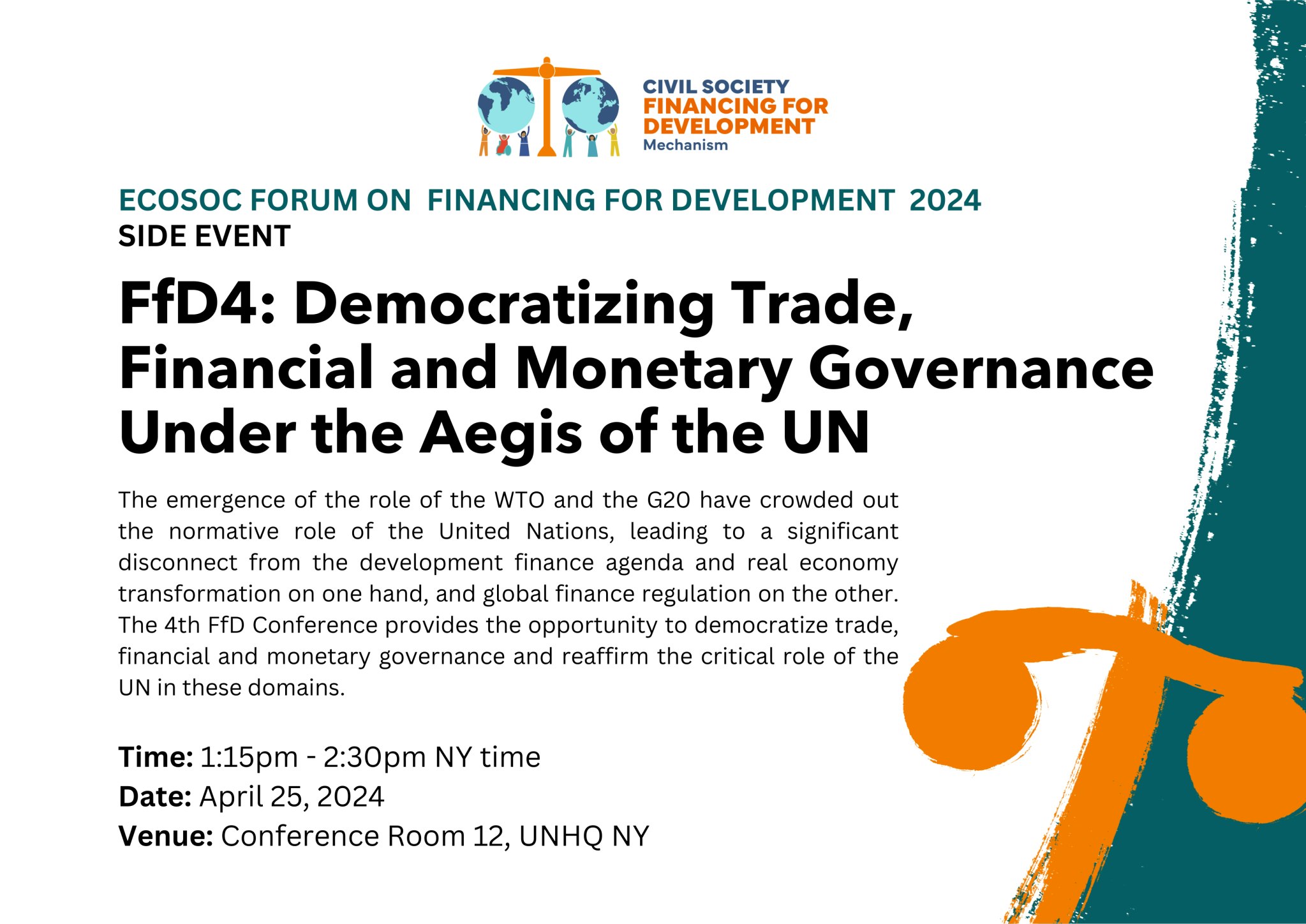FfD4: Democratizing Trade, Financial and Monetary Governance Under the Aegis of the UN

Description of the event
Over the past period, there has been a progressive erosion of key agreements within the Monterrey Consensus on issue related to trade, global finance, and systemic issues more broadly, and their impact on development.
This erosion corresponded to the belief by some yet powerful Member States, that trade governance, including on trade and development matters, needed to be entirely devolved to the WTO, while global financial and monetary coordination and regulation be taken up by the Group of 20. Unexpectedly, both have failed to deliver trade, financial and monetary frameworks that are consistent with strong developmental outcomes, the reduction of inequalities between and within countries, and socio-economic transformation in the Global South.
On the contrary, their combined action contributed to the consolidation of international economic regimes that severely limit the economic, financial and monetary sovereignty of developing countries, by promoting their unfair and inequitable integration in a system that is governed by a few powerful countries and the institutions they command, in a context of increasing consolidation of unchecked economic power in a handful of transnational corporations.
The emergence of the role of the WTO and the G20 have therefore crowded out the normative role of the United Nations, despite the resistance of UNCTAD to several attempts to undermine its mandate and capacity, also leading to a significant disconnect from the development finance agenda and real economy transformation on one hand, and global finance regulation
on the other. The 4th FfD Conference provides the opportunity to democratize trade, financial and monetary governance and reaffirm the critical role of the United Nations in these domains, particularly from a developmental angle. This may include (among others):
Review of trade and investment agreements, including at the WTO, regarding their impact on developing countries’ policy flexibility in meeting their development, climate and human rights objectives;
Agree a multilateral agreement for a coordinated and permanent termination of Investor State-Dispute-Settlement (ISDS) cases;
Agree on adequate regulation and supervision of financial institutions, credit rating agencies (see below) and hedge funds through a UN framework;
Establish a global ban on short selling among all markets and increase regulation/surveillance of high frequency trading;
Define a global agreement on the importance of capital account management to prevent capital flight, limit speculative trading and arrest declines in currency and asset prices